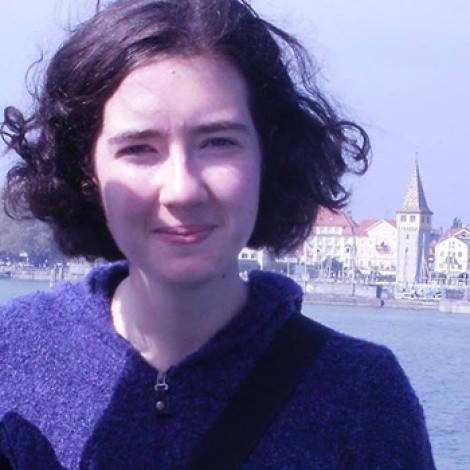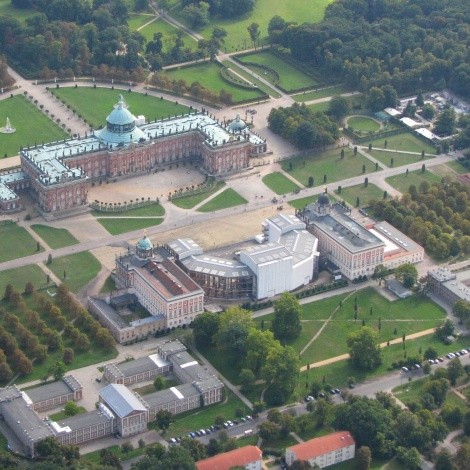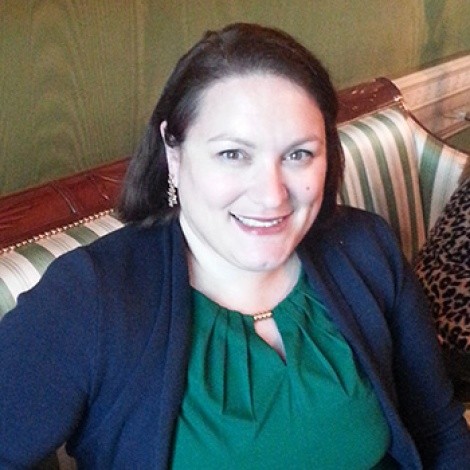Courses that satisfy the College language requirement only are designated as such. Other courses can satisfy either the language requirement or fulfill a Humanities distribution requirement.
The Department of German Studies will review the course selection of all entering students, taking into consideration school and AP records together with the results of the placement exam.
All students with prior knowledge of German who plan to elect German in either semester must complete this exam carefully. Final course placement will be based on the following considerations: the student’s specific training in German, the results of the student’s online placement exam, and scheduling possibilities. Students should take the online placement exam prior to registration, if possible.
Students in Groups II–IV, as described below, are required to complete the online placement exam. Students may choose their courses according to the following guidelines, but all students are encouraged to consult with the chair of the department during the summer or upon arrival on campus. Email: kremmler@mtholyoke.edu
All students contemplating spending all or part of their junior year in Germany should elect German in the first semester of their first year, since two continuous years of German in college are normally required for junior year programs in Germany.
GRMST-101 Elementary German
This course introduces speaking, reading, and writing German. Cultural and literary readings together with frequent use of video and other online resources dealing with everyday situations and experiences in the German-speaking countries sensitize students to the cultural context in which the language is used. Weekly conversation sessions with a German language assistant supplement class work.
GRMST-102 Elementary German
Continuation of the elementary German course; practice in speaking, reading, and writing German. Cultural and literary readings together with frequent use of online resources dealing with everyday situations and experiences in the German-speaking countries sensitize students to the cultural context in which the language is used. Weekly conversation sessions with a German language assistant supplement class work.
GRMST-201 Intermediate German
This course emphasizes further development of contextual reading, writing, and speaking skills in German. Focus on strategies that help students learn vocabulary and use grammatical structures in appropriate ways. Discussion of a variety of texts and genres, as well as exploration of topics such as immigration and social justice. Frequent writing assignments and speaking opportunities.
GRMST-205 Decentering Europe: An Introduction to Critical European Studies
Europe embodies crossroads of multiple cultures, memories, migrations, and political demarcations. What remains of the ancient and modern regimes? How have global movements, historical upheavals, and shifting boundaries within and adjacent to European borders, from early empires to contemporary global networks, affected the transformation of lives? How do ideological projects such as democracy, pluralism and fascism interact within Europe and the global scale? Taking a critical view of conventional paradigms of European nation states and "master" narratives, this course studies shifting European cultures and identities through multiple perspectives across time and space.
GRMST-213 The Gender of Yiddish
Yiddish and questions of gender have a long history. The language was called "mame-loshn" (mother tongue); it was associated with home and family. Jewish women were the primary intended readers of Yiddish, beginning with religious literature for those who could not read Hebrew and developing into a modern, secular, often moralizing literature. Despite the strong connections between Yiddish and women, women writers have been marginalized and underestimated. This course will explore the gendered history of Yiddish, including through the lens of queer theory. We will also read English translations of literature by modern Yiddish women writers who are being rediscovered today through new translations and scholarly attention.
GRMST-221 German Culture and Histories
Topics in German Culture and Histories examine historical, cultural, political and social developments that continue to frame debates surrounding German identity.
GRMST-221CW German Culture and Histories: 'Crafting Witches: Tracing the Historical Persecution of Racialized and Gendered Bodies Through Accusations of Witchcraft'
This course focuses on the persecution of people accused of witchcraft, beginning with European pagan religions and the spread of Christianity; the "Burning Times" in early modern Europe, and 17th-century New England. We examine the connections between the persecution of those accused of witchcraft and the oppression of colonized subjects through global perspectives, looking at aspects of persecution that illuminate broad ideas about race and gender that arose concurrently with colonization and capitalism. Course materials include readings and film examining witch persecutions from contemporary feminist and postcolonial perspectives.
GRMST-221DC German Culture and Histories: 'All the Glitter and the Gold: Decadence and Destruction in Weimar Germany'
In this course, we will explore the complex history, contested legacy, and contemporary resonance of Weimar Germany, from the murder of Rosa Luxemburg in 1919 to Hitler's rise to power in 1933. Was this dynamic interregnum in Germany's political history merely a prelude to catastrophe, or can we understand it instead as a site of daring political experimentation in which radically different visions of democracy, authority, mass politics, and public welfare were all up for grabs? Reading widely across primary sources-essays, speeches, news articles, and cultural artifacts from the period--as well as later reflections and analyses, we will ask: How exceptional was the fate of Weimar Germany?
GRMST-221FT German Culture and Histories: 'Into the Woods: Magic and Mischief in European Folkloric Traditions'
This course introduces students to the tradition of the German fairy tale and the development of the short story from the 19th century to the present. We will read and discuss fairy tales written by E.T.A. Hoffmann, Wilhelm Hauff, Ludwig Tieck, Adelbert von Chamisso as well as by contemporary authors such as Elfriede Jelinek, Yoko Tawada, and Kim De L'Horizon who incorporate fairy tales into their writings. We will engage with scholarship on fairy tales' oral and written transmissions, structures, meanings, and functions and analyze cinematic adaptations within the German speaking realm and beyond. Various interpretations of fairy tales will be explored, including their potential for social subversion through reinterpretation and rewriting.
GRMST-221GN German Culture and Histories: 'The Graphic Novel in Germany: Histories and Identities in Words and Pictures'
In this course we will read a selection of German-language graphic novels, including Nora Krug's 2018 Heimat: Ein deutsches Familienalbum, Birgit Weyhe's 2016 Madgermanes and Simon Schwartz's 1983 Drüben!. We focus on themes such as the representation of the Holocaust, reunification and migration and we examine the graphic novel as a unique literary genre that has garnered controversy in recent history. We will analyze the relationships between visual art and texts, as well as gain an understanding of how to read the graphic novel.
GRMST-223 Topics in German Studies
Topics in German Studies provide students with an intensive study of major themes, issues, and paradigm shifts in German cultural studies.
GRMST-223AR Topics in German Studies: 'The Art and Science of Revolution in German Cultures from 1789 to the Present'
Revolutions are deeply embedded in cultural, economic, political, and environmental structure. Some are violent, some are peaceful; some evolve out of historical processes over long periods of time; and others emerge spontaneously without warning. Still others are material in nature, such as the industrial revolution or the end of the Berlin wall. The seminar explores the causes, forms, and impact of major revolutions in German cultures from the invention of the printing press to the most recent "Wende" that led to unification. Other revolutions include the French Revolution, the German Revolution of 1848, the founding of the Weimar Republic, and the student movement in 1968.
GRMST-223FR Topics in German Studies: 'Fascism, Gender and Sexuality: Gender and Far-Right Movements in 20th Century Europe'
This course explores the use of gender in historical and contemporary fascist movements, examining the ways in which fascist movements construct images of "masculine" and "feminine" to shape ideology. We will look at the rhetoric of gender equity to enforce regression and oppression systems, and how these rhetorics are used as tools to enforce xenophobic and racist narratives against immigrants to the United States and Europe. This course will incorporate theoretical readings from political and social histories of 20th century Europe, gender and sexuality, as well as media sources like film, journalism and social media.
GRMST-223MG Topics in German Studies: 'Migration and Belonging in German Cultures'
What does it mean to belong? Who gets to decide who belongs? This course will explore ideas on belonging in the German-speaking context from the perspectives of marginalized communities. Through close-readings and analyses of visual images, narratives, and films produced by or about the experiences of migrants, refugees and people of color in Germany from the 18th century to the present, this seminar re-imagines the German literary canon to include those voices that are typically marginalized in cultural discourse.
GRMST-295 Independent Study
GRMST-325 Advanced Seminar in Transnational and Transdisciplinary German Studies
What constitutes contemporary German culture within global perspectives? How might we apply critical race theory, critical social theory, ethnic studies, and queer studies, in order to interpret trajectories of German cultures, histories, and memories? Building on interdisciplinary close-readings of German-speaking cultural production ranging from novels to documentary film, students develop a research topic that spans the humanities, sciences, and/or social sciences. Students may build on previous scholarly work in German studies and other disciplines, community-based learning, internships, and/or learning abroad to consider major concepts, issues, or problems in an original manner.
GRMST-327 Mayhem Under Nazi Rule: Who Whom, Why and How?
Nazi tyranny inspired heroic opposition across Europe, but also attracted many collaborators. Some resisters engaged in mass murder of their own. Many Germans embraced the fascist regime, but far from all. Working often against stereotypes and myths, historians have occasionally dug up deeply controversial truths and complexities about the Second World War. Ranging from France to Ukraine and from the 1930s to the present, this course probes both a mayhem-filled past and postwar national reckonings with it. Each student will help to frame one of the weekly discussions with a short essay, and will complete a substantial research essay by the end of the semester.
GRMST-395 Independent Study
GRMST-231 Topics in German and European Studies in a Global Context
An introduction to critical analysis of narrative and visual texts, cultural representation and production. Courses are taught in English.
GRMST-231FA Topics in German and European Studies in a Global Context: 'Fascism, Gender and Sexuality: Far-Right Movements in 20th Century Europe'
This course explores the use of gender in historical and contemporary fascist movements, examining the ways in which fascist movements construct images of "masculine" and "feminine" to shape ideology. We will look at the rhetoric of gender equity to enforce regression and oppression systems, and how these rhetorics are used as tools to enforce xenophobic and racist narratives against immigrants to the U.S. and Europe. This course will incorporate theoretical readings from political and social histories of 20th century Europe, gender and sexuality, as well as media sources like film, journalism and social media.
GRMST-231HC Topics in German and European Studies in a Global Context: 'Remembering the Holocaust in Global Perspectives'
This seminar explores the impact of different cultural forms of remembering the Holocaust within a global perspective. At the same time that the European Holocaust continues to be remembered, subsequent genocides and related mass violence around the globe are being remembered through multiple forms of memorialization, such as art, film, memorials, and narratives that mirror particular material and virtual forms of remembering the Holocaust. We explore how the interrelationship between Holocaust remembrance and other atrocities drives discussions about subsequent genocides, current antisemitism and racism, and forms of remembering violence.
GRMST-231HH Topics in German and European Studies in a Global Context: 'The Habsburgs, Hitler, and the Law'
This course explores the complex, often comic, and ultimately tragic history of Bohemia, a territory located today in the Czech Republic, but previously a part of the Habsburg Monarchy, then of Czechoslovakia, and then of Hitler's Third Reich. Students will complement historical studies with autobiographical material and contemporary fiction, beginning with the Revolution of 1848, progressing through the achievements and worrisome trends of Emperor Francis Joseph's 68-year reign, and concluding with the world wars. Emphasis on the interplay among Czechs, Germans, Jews, and other pivotal players: the House of Habsburg and its supporters, and the political elites of neighboring countries.
GRMST-231HR Topics in German and European Studies in a Global Context: 'History and Law'
An introduction to the study of history through law, using a comparative approach to group rights. Case studies, rooted in landmark court decisions and legislation, concern racial segregation in America before the civil rights era ('separate but equal') and in Europe during the Nazi era (the Nuremberg Laws, German 'national groups' in the East), as well as affirmative action in America and attempts at promoting equality among national groups in Austria before the First World War.
GRMST-231HT Topics in German and European Studies in a Global Context: 'The Holocaust in History'
An attempt at understanding the Nazi-led assault on Europe's Jews. Course units include an exploration of origins, both German and European; an analysis of the evolving mechanics of genocide (mobile killing squads, death camps, etc.); comparisons (Germany proper vs. Poland, the Holocaust vs. other instances of state-sponsored mass murder); legal dimensions; and an introduction to the politics of Holocaust remembrance since 1945.
GRMST-231PM Topics in German and European Studies in a Global Context: 'In Conversation with the Past: The Politics and Problems of Memory'
How should the site of a former concentration camp be preserved? Who designs a memorial? How are atrocities remembered in daily life and culture as well as on the political stage? This course will approach the subject of memory as a meeting point between the personal and political, by considering diverse modes of commemoration in Germany and the United States. While exploring how literature, visual media and political policy engage and shape individual and collective memory, our approach will be comparative and interdisciplinary with an emphasis on relevant social and cultural events. While the focus of this course will be on German history of the 20th century, students are encouraged to think comparatively about memory culture and politics on a global scale.
GRMST-231TR Topics in German and European Studies in a Global Context: 'Translation Theory and Practice in Jewish Literature'
This course examines translation as a mode of cultural transmission, creativity, and theoretical inquiry for Jewish literature and thought. Topics include: translation as a means of mediating access to the sacred; women's roles as readers and creators of translations; enduring debates about what may be "lost" in translation; and whether translation into "Global English" helps or hurts the survival of literatures in Yiddish, Ladino, and other minoritized languages. Students put theory into practice by reading translations of Jewish literature critically and comparatively and by producing their own translations.
GRMST-231WD Topics in German and European Studies in a Global Context: 'Into the Woods: The Brothers Grimm and the European Folklore Tradition'
This course examines the classical origins, artistic form, and modern legacy of the folktales famously collected by the Brothers Grimm, situating them in both their German and their wider European context. Students investigate the cultural, political, and psychological influences of the folktale genre on individuals, social groups, and nation-states from antiquity to the present. We consider renditions of the tales in various media and contemporary topics such as childhood pedagogy, gender, social (in)justice, psychology, and political ideology. Various interpretations of fairy tales will be explored, including their potential for social subversion through reinterpretation and rewriting.
GRMST-231YN Topics in German and European Studies in a Global Context: 'Yiddish Nation: Language as Homeland'
For roughly 1000 years Ashkenazi Jewish culture has existed in exile. Since these stateless people were living in diaspora, without a sovereign territory, the Yiddish language itself became a symbolic homeland. This course will explore how some Yiddish-speaking Jews embraced their stateless existence not as a historic tragedy but as a revolutionary form of identity called diaspora nationalism. We will explore Yiddish cultural identity through literature, music, film, and politics. We will read works of history and cultural theory and seek points of intersection with other migrant, refugee, stateless, and diasporic cultures.



